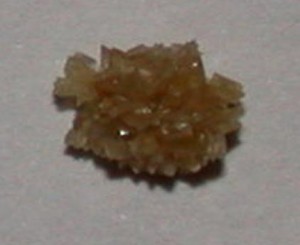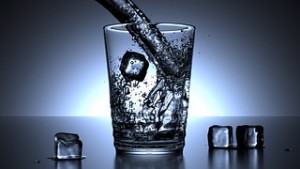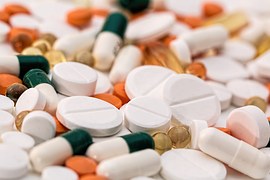Don’t go into denial when your body sends you signals!
Working out and eating a balanced diet will go a long way toward improving health, but learning how to listen to your body is one of the most important things you can do for staying healthy. Unless you are sensitive to the signs it sends you, you won’t know when you are putting your body through too much, when it’s time to eat or if you’ve had enough, or even when something is wrong. It usually takes severe, debilitating pain before most people contact a doctor and, even then, sometimes it takes more than that.
Kidney stones are one health issue that should not be ignored. While they aren’t a condition that everyone experiences, the National Kidney Foundation says that one in ten people will develop kidney stones at some point. The good news with these little mineral deposits is that they can be detected early if you know how to interpret the signals your body is sending.
Reading the Signs
Often when kidney stones first start to develop, there is no pain, just a few telltale signs that can be easy to ignore. You may notice the color of your urine has gotten darker or gone cloudy, and there might be grainy, almost gravelly sediment in it. These are the early warnings to look for so you can get treatment before the condition worsens. If you try to wait it out, willing it to get better on its own, you’ll eventually experience other, more severe symptoms. According to the Mayo Clinic, these can include lower back pain that may spread to the groin and lower abdomen, painful urination, difficulty urinating, blood in the urine, and fever if an infection develops.
Those symptoms are ones that could be associated with a number of other health issues, but that is all the more reason to seek medical help as early as possible.
So, What Are These Stones?

Mineral deposits that start out as tiny crystals, kidney stones can grow larger if they aren’t flushed from your body. Image by Ted Johnson
Kidney stones are actually mineral deposits that start as small crystals in the kidneys. If you’ve ever seen a crystal close-up, you know it has jagged little edges. When those rough protrusions attract other elements, they join together, and the stone starts growing, kind of like a snowball rolling downhill. The stones will continue to grow unless they are passed out of your body, and large stones can create dangerous blockages in the kidneys or urethra.
There are four common varieties of kidney stones listed by the National Kidney Foundation, with the two most common being calcium oxalate and uric acid stones. The calcium oxalate type doesn’t actually develop when there’s too much calcium in the system. Instead, those tend to form when you don’t have enough calcium. Uric acid stones typically develop when your body produces high amounts of monosodium urate, an event that is brought on by eating foods that are naturally high in purines such as shellfish or organ meats.
Though listed as “common” types of kidney stones, the other two are actually less common. Struvite stones can be caused by upper urinary tract infections. Cystine stones are in fact pretty rare and are seen in people who have a genetic predisposition to develop kidney stones.
Kidney Stone Causes
The first thing that will run through your mind if you develop kidney stones is, “Why me? How did I get kidney stones?” It might be discouraging, but with a number of different types of stones, there are a number of issues and conditions that can cause them. In addition to the direct causes such as inadequate fluid intake, insufficient calcium, high animal protein intake, UUTIs, and heredity, the Mayo Clinic says that being obese, gastric bypass surgery, and digestive diseases can also increase your chances of developing kidney stones. Additionally, certain medical conditions such as hyperparathyroidism, renal tubular acidosis, and cystinuria have been known to cause kidney stones. The National Institute of Diabetes and Digestive and Kidney Diseases says that diuretics, the protease inhibitor indinavir that is used to treat HIV, and the anti-seizure drug topiramate are all medications that have been associated with increased risk of kidney stones.
Take a look at your lifestyle, diet, personal health, and family history. It may be easy to pinpoint why you developed kidney stones but, if your doctor can determine what type of stones you have, you will be better able to decide what lifestyle changes you can make to reduce the chances of more kidney stones down the road.
Almost as Good as a Pound of Cure

Drinking plenty of water is one of the most important things you can do to help flush kidney stones from your body as well as to reduce your chances of developing more stones down the road.
Not to be a downer, but if you have had one bout with kidney stones, your chances of getting them again have increased by 50 percent. According to the Mayo Clinic, however, there are things you can do to reduce the odds that you’ll develop more stones. Exercise regularly and lose some pounds if you are overweight. Drink more water–especially if #1) you don’t get enough fluids and #2) you are beginning a workout regimen. The water you sweat out bypasses your kidneys and bladder, but the National Kidney Foundation points out that it is vital to keep fluids running through those organs to prevent and eliminate kidney stones. Depending on the type of stones your body forms, you can adjust what foods you eat, but don’t go overboard. Moderation is always better than extremes, so rather than eliminating animal proteins or oxalate-rich foods such as sweet potatoes, spinach, and nuts, just reduce the amounts you eat. Those foods still offer health benefits that you don’t want to lose.
Salt may also play a part in causing kidney stones so, if you don’t have low blood pressure, you may want to reduce your salt intake or switch to a salt substitute. Communicate with your doctor, too. He will be aware of all of the health issues you face and can adjust or change your medications if necessary as well as provide advice on your diet to ensure you stay healthy while avoiding kidney stones.


